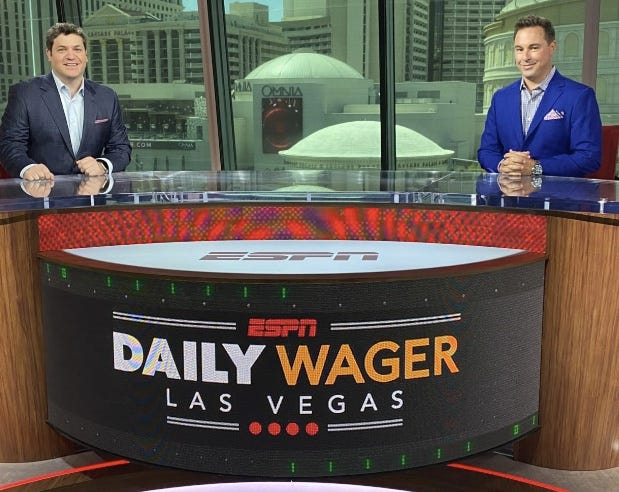Rabbit Hole: ESPN's Gambling Gamble, and Our Perilous Cultural Bet
Media company gets into business with, perhaps, the most deleterious addiction in the world
Rabbit Hole” is a single-topic deep dive column that comes out twice per month for paid subscribers. The free newsletter returns next week.
If CNN suddenly started selling CNN-branded marijuana — let’s call it CNNWeed — you’d probably do a double take. How about Instagram Vodka — maybe they can rename Threads “Shots”? The New York Times keeps scooping up…



